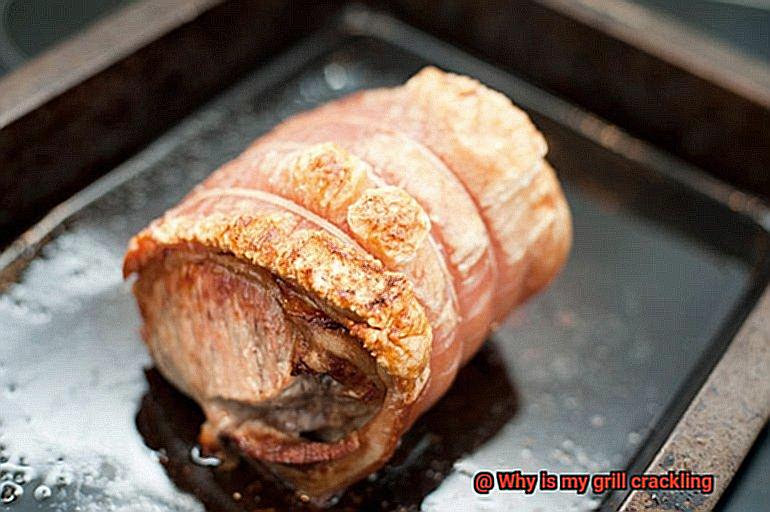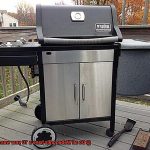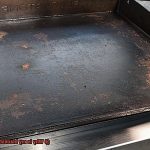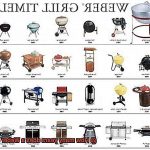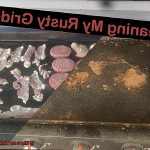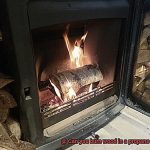Grilling is more than just cooking; it’s a way of life. The sizzle of steak on the grill and the smoky scent of barbecue ribs are enough to make anyone’s mouth water. But, have you ever experienced an unusual crackling sound coming from your grill? If so, don’t worry – you’re not alone.
The crackling noise in your grill can be caused by a variety of factors, and understanding them can help prevent any potential damage. In this blog post, we’ll explore the reasons behind why your grill crackles, so you can continue to enjoy your grilling experience without any interruptions.
From moisture trapped inside the grill to a buildup of grease, we’ll delve into the most common culprits of grill crackling and provide tips on how to fix them. Additionally, we’ll share some advice on how to properly clean and maintain your grill to prevent the crackling sound from happening in the first place.
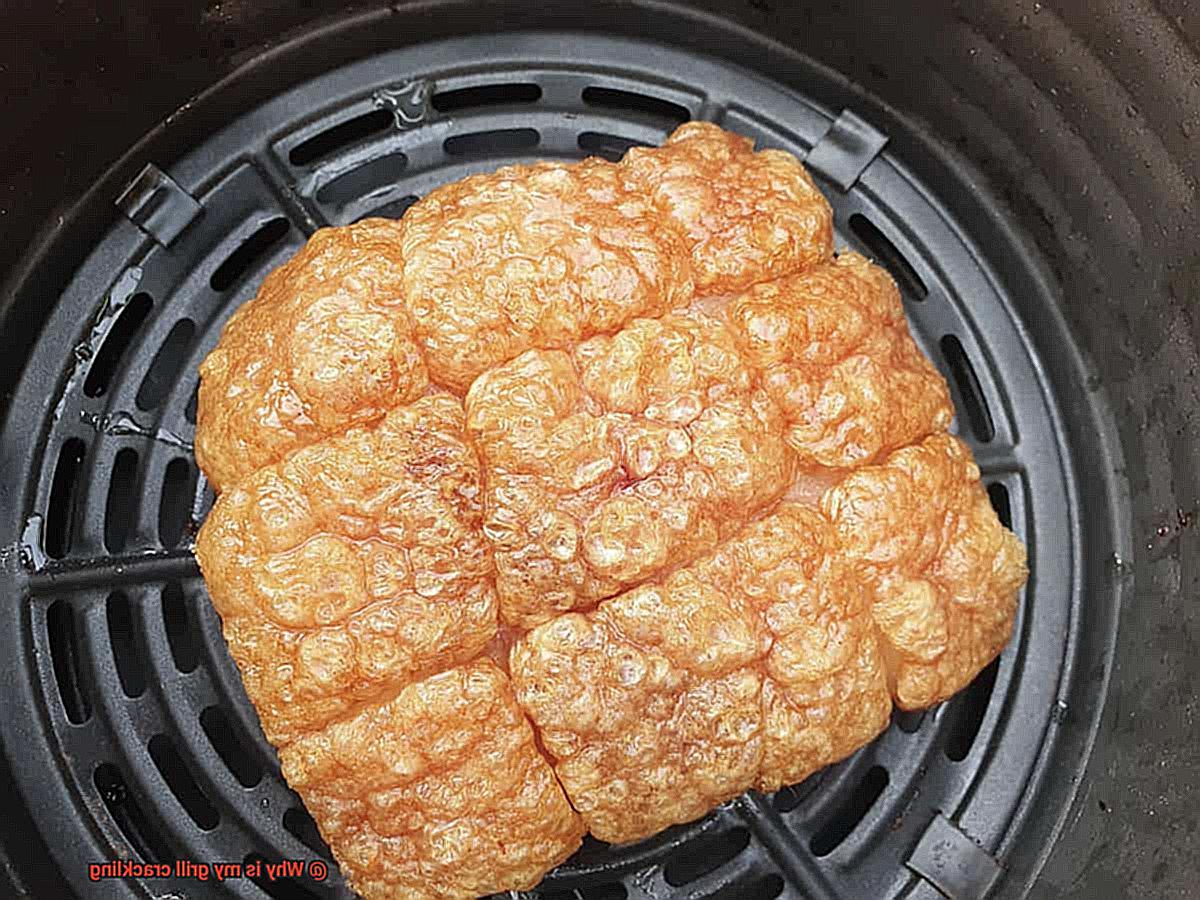
Whether you’re a seasoned pro or a beginner, this post is perfect for anyone who wants to learn why their grill crackles and how to prevent it. So grab yourself a cold drink and let’s get started on this juicy topic.
Contents
What is Grill Crackling?
This phenomenon is known as grill crackling and is a natural part of the cooking process when grilling or barbecuing. But what causes this sound, and is there anything to be concerned about?
Grill crackling occurs when moisture on the surface of food hits a hot grill or flame. The sound can range from a gentle sizzle to a loud popping noise, depending on the temperature of the grill and the type of food being cooked. While some people enjoy the sound, excess moisture on the surface of food can lead to dangerous flare-ups if not handled properly.
There are several reasons why your grill might be crackling. One common cause is moisture present on the surface of food during cooking. Foods with high water content, such as vegetables and fish, can turn that moisture into steam when exposed to high heat, leading to a sizzling or crackling sound.
Another cause of grill crackling is the buildup of grease or other debris on the grill grates. Over time, grease and food particles can accumulate on the grates and create hot spots, leading to uneven cooking and potentially dangerous flare-ups.
Lastly, the type of fuel you use in your grill can also contribute to crackling sounds. Charcoal and wood chips can create popping and crackling noises as they heat up and burn. Wet fuel can create even more steam, resulting in more pronounced crackling sounds.
To prevent potential safety hazards associated with excess moisture and flare-ups, make sure to clean your grill regularly and use dry fuel for grilling. By understanding the causes of grill crackling, you can better prepare and cook your favorite foods on the grill with confidence.
Common Causes of Grill Crackling
Summer is the season of outdoor grilling, but when your grill starts crackling and popping, it can be a frustrating and even dangerous experience. As an expert in this field, I have done my research and found some common causes of grill crackling that you should be aware of to prevent potential hazards.
Moisture on the cooking surface is one of the most prevalent culprits behind grill crackling. If the grill is not adequately heated before cooking, any liquid or moisture on the grates will create a sudden steam reaction, leading to a loud crackling sound and even minor burns. To prevent this, always preheat your grill before cooking and make sure to dry off any excess moisture from the surface.
Another cause of grill crackling is the buildup of grease and food debris on the cooking surface. Over time, these substances accumulate on the grates, creating a sizzling sound when heated. This buildup can also lead to flare-ups, which are dangerous flames that shoot up from the grill and can cause significant burns or fires. To prevent this, make sure to clean your grill thoroughly after each use.
Using wet wood chips or charcoal can also cause your grill to crackle. Wet wood chips produce a lot of smoke and steam as they heat up, creating a loud cracking noise. Damp or wet charcoal briquettes will also make a popping sound when they come into contact with hot coals. To avoid this, always use dry wood chips or charcoal.
If your grill is making unusual noises that seem unrelated to moisture or debris on the grates, it could be due to a malfunctioning burner or igniter. In this case, it’s best to have a professional inspect your grill for any mechanical issues.
Moisture on Food and the Grill
Grilling is a beloved pastime that brings family and friends together for delicious meals and outdoor fun. However, one common issue that can arise is the crackling sounds that come from the grill. Moisture on both the food and the grill itself can be the culprit.
When preparing meat for the grill, especially cuts with high-fat content, the fat can drip onto the hot grates, causing flare-ups. These flare-ups create steam and smoke, which leads to crackling sounds. Additionally, using too much marinade on your meat can cause excess marinade to drip onto the grill, resulting in similar noises.
Fortunately, there are simple steps you can take to prevent moisture from causing crackling sounds on your grill. First and foremost, remove any excess fat from your meat before placing it on the grill to reduce the amount of fat that drips onto the grates. Secondly, use a drip pan or foil to catch any excess drippings and prevent flare-ups. Lastly, avoid using too much marinade on your meat or pat it dry before placing it on the grill.
By following these steps, you can reduce the amount of moisture on your food and grill, which will significantly decrease the likelihood of crackling noises while cooking. Not only will this improve the quality of your grilled meals but also ensure a safer and more enjoyable grilling experience for everyone involved.
It’s important to note that proper cleaning and preheating techniques are also crucial in preventing moisture from causing crackling sounds on your grill. Always clean your grill thoroughly before each use and preheat it to the appropriate temperature before adding food.
Grease Buildup on Grates
Grilling is a beloved pastime that brings people together for delicious meals and good times. However, when it comes to grill maintenance, one of the most important things to keep in mind is the buildup of grease on the grates.
As you cook your favorite meats on the grill, fats and oils from your food drip onto the grates and accumulate over time. This buildup can lead to annoying crackling sounds, flare-ups, and even fires if not addressed properly.
To prevent excessive grease buildup, it’s crucial to clean your grates thoroughly after each use. Start by using a grill brush to scrape away any excess food particles or debris, then wipe down the grates with a damp cloth. For more stubborn grease buildup, consider using a specialized grill cleaner or degreaser.
In addition to regular cleaning, it’s important to regularly inspect your grill for any signs of excessive grease buildup or damage. If you hear unusual crackling sounds or see flames shooting up from the grates during cooking, take action immediately. This may involve cleaning the grates more thoroughly, replacing damaged parts, or adjusting your cooking techniques.
By keeping your grill grates clean and free of excessive grease buildup, you can ensure that your grill operates safely and efficiently. Here are some additional tips:
- Preheat your grill before cooking to burn off any excess grease on the grates.
- Use leaner cuts of meat to reduce the amount of fat dripping onto the grates.
- Consider using a drip pan under your food to catch excess drippings and reduce grease buildup on the grates.
Fuel Type Used in the Grill
Before you start cooking up a storm, it’s crucial to choose the right fuel for your grill. The three most common types of fuel are charcoal, propane, and natural gas – each with its unique advantages and disadvantages that can affect the crackling sounds you may hear.
Charcoal is a popular fuel choice for many grillers due to its affordability and ability to add a smoky flavor to your food. However, charcoal can produce a lot of smoke and ash, leading to those loud crackling sounds that can interrupt your cooking experience. To avoid this, ensure that the coals are evenly distributed and not too close together. Keep an eye on your grill to prevent flare-ups and uneven cooking.
On the other hand, propane and natural gas are clean-burning fuels that are often used in gas grills. Unlike charcoal, these fuels are less likely to produce those pesky crackling sounds. However, if there is grease or moisture buildup on the grill grates or burners, it can still occur. Therefore, regular cleaning is essential for safe and efficient grilling.
When it comes to choosing the best fuel for your grill, it ultimately depends on what you want to achieve. If you’re a fan of that smoky flavor in your food and don’t mind a little extra cleanup, then charcoal is the perfect choice for you. However, if speed and convenience are more important than taste, then propane or natural gas may be your best bet.
How to Prevent Unwanted Grill Crackling
Not only can it be annoying, but it can also be a safety hazard if left unaddressed. Fortunately, there are several easy steps you can take to prevent unwanted grill crackling and ensure that your next outdoor cooking experience is a success. Here are five sub-sections that will help you achieve a quieter and more enjoyable grilling experience.
Keep Your Grill Clean
The first step in preventing unwanted grill crackling is keeping your grill clean. Grease and food particles can accumulate on the grates and cause hot spots, leading to dangerous flare-ups and loud crackling sounds. To prevent this, make sure to clean your grill before and after each use using a brush or scraper to remove any stubborn buildup. This will not only keep your grill safe but also improve the taste of your food.
Use Less Oil
Using too much oil while cooking on the grill is another common cause of unwanted crackling. Excess oil can drip onto the flames and cause loud pops and sizzles. Instead of using too much oil, try lightly coating the grates with an oil spray or brush before cooking. This will help to prevent any excess oil from dripping onto the flames and causing unwanted noise.
Watch the Temperature
High temperatures can cause excess moisture to evaporate from the meat, resulting in unwanted crackling. To prevent this, try reducing the temperature slightly and cooking for a longer period of time. This will not only reduce the likelihood of crackling but also help to ensure that your food is cooked evenly and thoroughly. Keep a close eye on the temperature of your grill to avoid any surprises.
Pat Your Meat Dry
Excess moisture on the surface of the food being grilled is another common cause of grill crackling. To prevent this, try patting your meat dry with a paper towel before placing it on the grill. This will help to remove any excess moisture and reduce the likelihood of crackling. Additionally, marinating your meat for a shorter period of time can also help reduce the amount of moisture.
Use a Drip Pan
Using a drip pan under the grill grates to catch any excess grease or drippings is another effective way to prevent unwanted crackling. This will not only prevent crackling but also make cleaning up easier. Make sure to choose a drip pan that fits your grill and is made of high-quality materials that can withstand high temperatures.
Cleaning and Maintaining Your Grill
Grilling is one of the most popular outdoor activities enjoyed by many, but hearing crackling or popping sounds coming from your grill can be frustrating and potentially dangerous. Luckily, there are simple steps you can take to prevent these sounds and keep your grill in top condition. As an expert in cleaning and maintaining grills, allow me to share some tips that will help make your grilling experience safe and enjoyable.
The first step in preventing crackling or popping sounds from your grill is to clean it after each use. Not only does this help keep your grill in good condition, but it also prevents leftover food or grease from causing flare-ups during future grilling sessions. Use a wire brush or scraper to remove any debris from the grates, then wash them and the inside of the grill with warm soapy water, rinse everything thoroughly, and let it dry completely before using it again.
Another crucial aspect of maintaining your grill is regularly checking and replacing any parts that may be worn or damaged. This includes burners, igniters, hoses, etc. If you notice cracks, rust, or other signs of wear and tear, it’s best to replace these parts as soon as possible to avoid any safety issues.
In addition to regular cleaning and maintenance, there are steps you can take to prevent your grill from crackling or popping during use. For example, moisture buildup on the grates or inside the grill is a common cause of such sounds. To prevent this, try preheating your grill for 10-15 minutes before placing food on the grates. This will burn off any excess moisture and prevent any unwanted sounds.
To summarize, here are some easy and effective steps you can take to clean and maintain your grill while preventing annoying crackling or popping sounds:
- Clean your grill after each use using warm soapy water and a non-abrasive sponge or cloth.
- Regularly check and replace any worn or damaged parts.
- Preheat your grill for 10-15 minutes before cooking to burn off excess moisture.
Keeping Moisture Away from the Grill
Grilling is a mouth-watering experience that can quickly turn frustrating if your grill starts crackling. Excess moisture on the grates is one of the main culprits behind this issue, but don’t worry – there are plenty of ways to keep moisture at bay and enjoy a perfect grilling experience.
First and foremost, preheating your grill properly is crucial. This burns off any excess moisture present on the grates and ensures even cooking. Give your grill ample time to heat up before placing any food on it to reduce crackling and ensure delicious results every time.
Dry rubs are an excellent alternative to wet marinades for adding flavor without adding extra moisture. Spices and herbs, too, can enhance the taste of your food without adding extra liquid. Be creative with your spice blends and experiment with different flavors to find what works best for you.
It’s also essential to make sure that your food is as dry as possible before placing it on the grill. Pat down meats with a paper towel and allow vegetables to air dry for a few minutes after washing them. This will remove any excess moisture and reduce the chance of crackling on the grill.
Investing in a good quality grill cover is another way to prevent excess moisture buildup on the grates when the grill is not in use. Rain and other sources of moisture can wreak havoc on your grill, so shielding it from them is crucial.
dB-0pGrNbyU” >
Conclusion
In conclusion, grilling is more than just a cooking method – it’s a social event that brings people together in the great outdoors. But nothing ruins the fun like the unsettling crackling noise coming from your grill. Fear not, for we have explored the most common culprits of this pesky problem and provided tips on how to fix them.
Moisture trapped inside your grill can cause sizzling and popping sounds, while a buildup of grease can lead to dangerous flare-ups. To prevent these issues, keep your grill clean and use less oil when cooking. Watch the temperature carefully and pat your meat dry before placing it on the grates. You can also use a drip pan to catch any excess grease or drippings.
Investing in a high-quality grill cover is another way to prevent excess moisture buildup on the grates when the grill is not in use. And don’t forget about proper cleaning and maintenance techniques. Always clean your grill thoroughly before each use and preheat it to the appropriate temperature before adding food.
By following these simple steps, you can enjoy a safer and more enjoyable grilling experience with family and friends.

